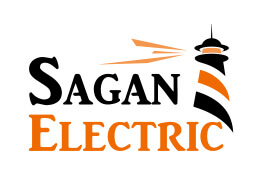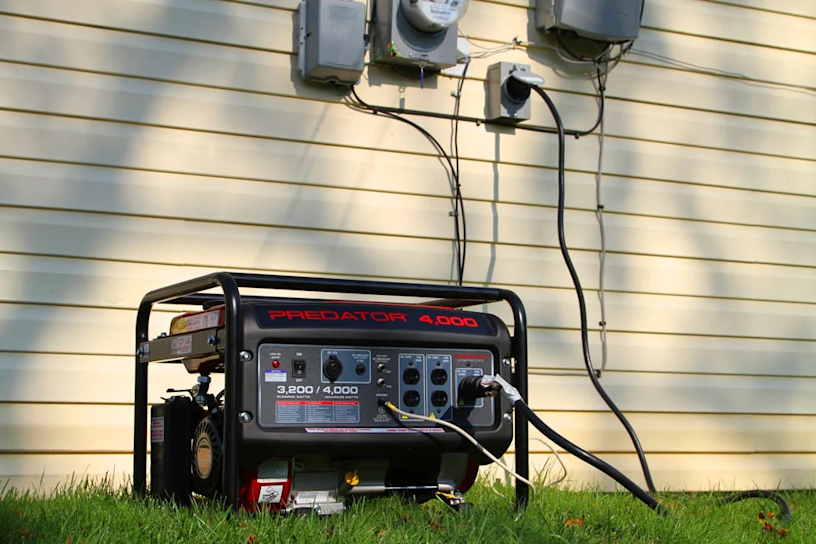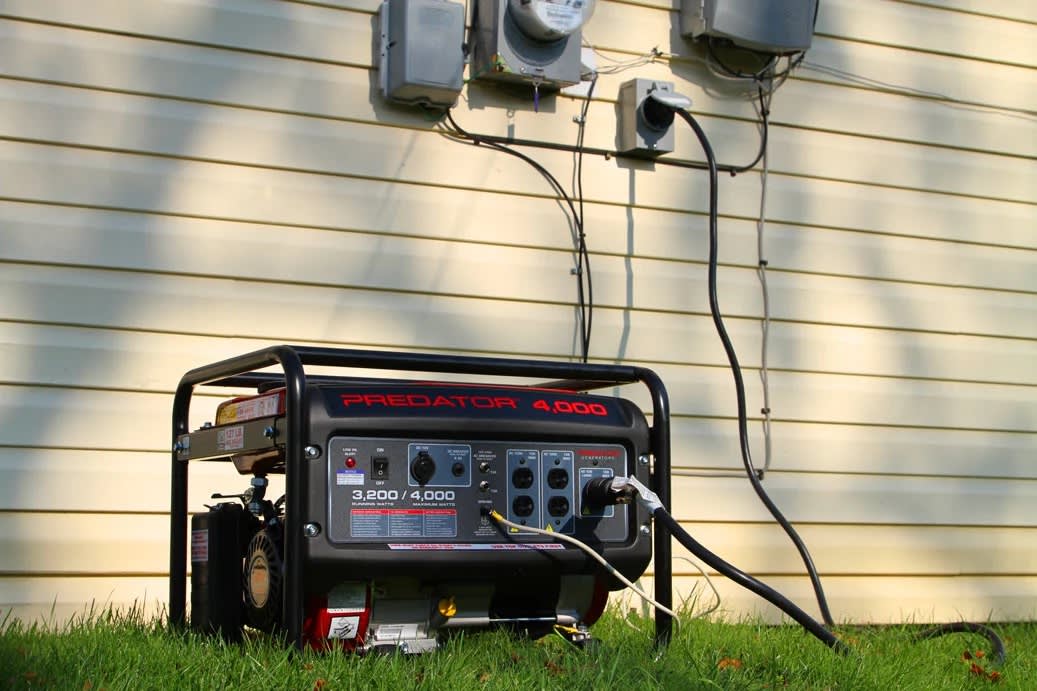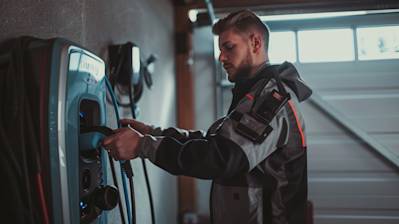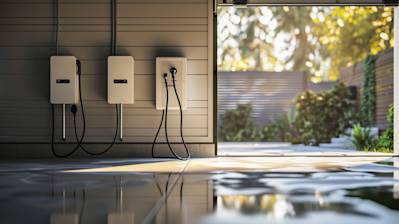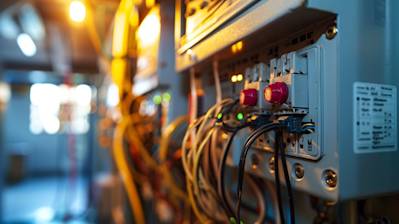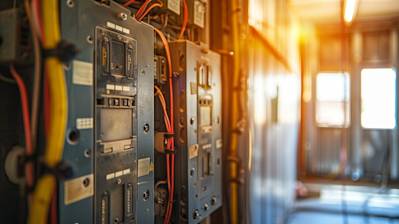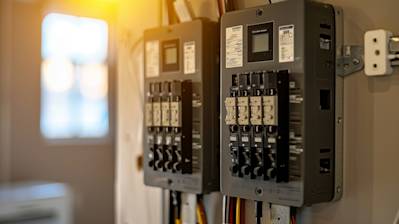In the event of a power outage, a generator can serve as a lifeline, delivering the electricity necessary to power your home. This critical tool will ensure you can continue your daily routines as planned. Today, we will dive deep into the topic of how to hook up a generator to your house, giving you a well-rounded understanding of the process involved, safety precautions you need to take, and the types of generators most suitable for different needs and scenarios.
How to Choose the Perfect Generator for Your Home
Before we explore the specifics of hooking up a generator to your house, it's important to understand how to pick the right type and size of generator.
Generators come in two main types:
Standby generators:
- These are installed permanently on a concrete pad in your yard and provide uninterrupted backup for days.
- They're ideal for people living in areas frequently hit by lengthy power outages.
Portable generators:
- These are more affordable and good for running a few essential appliances like refrigerators, but they require more effort to set up.
- They must be positioned outside and away from windows to avoid potential carbon monoxide hazards.
To determine the perfect generator size for your house, you'll need to consider:
- The number and total wattage of the appliances you want to power simultaneously, from refrigerators to lights and computers.
- Whether you want to power your entire house or just essential circuits.
After understanding the generator's type and size that meets your home's electrical requirements, let's explore the steps to hook it up.
Step-by-Step Guide on Setting Up Your Generator
Getting Your Generator Ready
Firstly, make sure your generator is ready for use. For portable generators, ensure it's equipped with a transfer switch. For standby generators, make sure it's properly installed according to the manufacturer's guidelines.
Portable Generator Set Up
To set up a portable generator:
Start by positioning it outdoors, at least 10 feet away from house windows and doors to prevent exhaust fumes from entering the house.
Connect the generator to the transfer switch using a heavy-duty outdoor-rated cord.
Start the generator by following the manufacturer's instructions. This usually involves turning on the fuel valve, moving the generator's choke to the start position, and then turning the key or pulling the rope to start the generator.
Once the generator is running, you can now flip the switches on the transfer switch from the LINE to the GEN (generator) position.
Standby Generator Set Up
For a standby generator, the process is somewhat simpler because it will come on automatically whenever there's a power cut:
When the power goes off, the automatic transfer switch disconnects your house from the utility grid and shifts to 'generator power'.
Once the utility power is restored, the system will shift your house back to utility power and turn the generator off.
Remember, this type of generator should be installed by a professional to ensure safe and correct connection.
Important Safety Precautions when Using Generators
Beyond understanding the mechanics of how to hook up a generator to your house, it’s essential to consider the vital safety measurements. These ensure your safety and that of your generator, raising your preparedness level in case of a power outage.
- Always operate your portable generator outdoors, away from windows and doors.
- Do not overload your generator. It can cause damage to your appliances and generator.
- Install a carbon monoxide detector in your house to alert you if carbon monoxide levels get dangerous.
- Store your generator fuel safely and never refuel a generator that is running or hot.
- Avoid back feeding by not plugging your generator directly into a wall outlet.
- Follow the manufacturer's maintenance schedule to keep your generator in a good working condition.
Frequently Asked Questions about How To Hook Up A Generator To Your House
What are the basics of generator installation?
A generator is normally installed outside the home, similar to a central air conditioner unit. The installation involves connecting the generator to a fuel source (like natural gas or propane), installing a transfer switch, and connecting the generator to the switch. Once installed, the generator is designed to create electricity when the power goes out.
What type of generator do I need to power my whole house?
The type of generator you'll need depends on your home's power needs. Usually, whole house generators range from 22,000 to 48,000 watts. Consider the number of appliances and their power consumption when determining the wattage range.
Why do I need a transfer switch for a generator?
A transfer switch is necessary for safety. It disconnects your house from the grid and connects it to the generator. This prevents electricity from your generator from going back into the power lines, potentially causing a dangerous situation.
What are the steps to connect a generator to a house?
Before proceeding, ensure you have the necessary items including a generator, a transfer switch, power cords, and an interlock kit. Follow the manufacturer's instructions for your specific generator and transfer switch but the steps typically involve:
- Install the transfer switch next to the main electrical panel.
- Turn off the main power, then connect the generator to the transfer switch using the power cord.
- Move the transfer switch from 'LINE' to 'GENERATOR'.
- Start the generator and bare for a few minutes to stabilize.
- Check if everything works smoothly by plugging in an appliance.
Can I hook up a generator to my house without a transfer switch?
Technically, yes, but it's not recommended or legal in many areas. Using a generator without a transfer switch can lead to electrical overloads, damage to appliances and the generator, or even electrocution.
What should I consider when hooking up a generator to my house?
Remember, safety is critical when dealing with electricity. Before connecting your generator, ensure your hands are dry. Always follow manufacturer instructions, local codes and have the system checked by a professional.
What is an interlock kit and how does it work with a generator?
An interlock kit serves a similar purpose to a transfer switch, safeguarding your home and the power grid. When activated, it allows power from the generator to flow into the house, but not back into the main grid. It's a less expensive option but not suitable for all types of generators and homes.
Can I do the generator hook up myself?
While you might feel confident in carrying out the installation, it's generally a job best left to a professional electrician. In many areas, this work needs to be inspected and approved. A poor installation can result in damage to your home, the grid, or even cause injury.
How often should I maintain my generator post hooking it to my home?
Maintenance schedules can vary depending on how often you use the generator and its manufacturer recommendations. Generally, it's a good practice to check your generator at least once a month and after major power outages. The oil should be changed every 50-60 hours of use.
Pros of Hooking Up a Generator to Your House
There are several immediate advantages that you gain when you decide to connect a generator to your house.
Continuous Power Supply
Peace of Mind During Power Outages
Imagine this: a storm is swirling outside, and all of a sudden, the electricity goes out. Usually, this would lead to issues like food spoilage, lack of heating or air conditioning, and general discomfort. However, with a generator hooked up to your house, you have an immediate backup and can keep the essential appliances running until the power is restored.
Convenience
Permanent generators offer convenience by kicking in just a few seconds after the power goes out. You don’t have to scramble in the dark to find torches or worry about connecting appliances, as the generator ensures a seamless transition between power sources.
Safety
Prevents Power Surge Damage
When power is restored following an outage, power surges often occur, and these can lead to damage in electrical devices and appliances. Generators regulate the power supply, preventing surges from occurring when public service power is restored.
Reduced Risk of Using Candles
Using candles during power outages could pose potential fire hazards. With a secured power supply from a generator, the need for candles is eliminated, making your home safer during blackouts.
Essential for People Who Work from Home
Power is essential, especially for people who work remotely. A generator ensures that you stay connected and can continue your work smoothly, even during power outages.
Cons of Hooking Up a Generator to Your House
While there are plenty of advantages of having a generator at home, certain challenges can’t be overlooked.
Installation Cost and Maintenance
Upfront Costs Are High
Generators, especially standby ones, are expensive. Depending upon the size of the unit and the power capacity, a generator could cost you thousands of dollars.
Installation Costs
Besides the cost of the generator itself, the installation process often requires professional assistance, which adds to the overall cost.
Regular Maintenance
Maintenance requirements of the generators can prove to be another major drawback. Generators, like all machines, require regular maintenance and occasional repairs, which could add up over time.
Environmental Impact
Generators, particularly those that run on fossil fuels, produce harmful emissions that contribute to air pollution.
Noise Levels
Generators can be noisy, especially portable ones. If not properly insulated, the noise could prove to be a nuisance for your neighbors and disturb the peace in your surroundings.
Safety Concerns
Incorrect use of generators can pose serious safety risks, like carbon monoxide poisoning if used indoors or in close quarters. Therefore, generators should be appropriately positioned, and their operation should comply with safety standards.
Fuel Storage
Storage Space
Generators require fuel to run, meaning you need to have a safe, dedicated space to store fuel. This could be an issue if you have limited space.
Fuel Expenses
In addition to storing fuel, the cost of the fuel itself is another factor to consider when calculating the overall cost of having a generator.
Dependency on Fuel Supply
In case of prolonged power outages, such as after a natural disaster, fuel supplies may be disrupted. In such cases, even if you have a generator, you might find it challenging to keep it running due to lack of fuel.
In conclusion, connecting a generator to your house can provide a plethora of benefits, from constant power supply to increased safety. On the other hand, factors such as installation cost, maintenance, and fuel supply issues can be potential disadvantages. Weighing these pros and cons against your particular needs and resources will help you make an informed decision.
Summary
So, there you have it - the basics of how to hook up a generator to your house. Sure, it could seem a bit technical at first but once you dive into it, it's pretty straightforward. Most importantly, remember safety should always come first, so never forget the recommended precautions.
Being prepared for a power outage can save you a lot of trouble down the line. If you know how to hook up a generator to your house, you are one step ahead of the game. It might take some time to get everything set up initially, but the peace of mind it provides is certainly worth the effort. Take your time, follow the steps, and voila - you're ready for anything.
Now you're equipped with the knowledge to keep the lights on when the rest of the neighborhood might be in the dark. Knowledge is power, literally, in this case! Remember, every home setup is unique, so consider your individual circumstances and seek professional help if needed. But, with the tips we've just walked through, you should be ready to safely and effectively hook up a generator to your house when you need it the most.
About Sagan Electric
Sagan Electric of Sacramento, CA is your local go-to for all of your electrical needs. Rooted in our community since the '90s, our team of highly trained professionals is eager to light up your world, literally! From rewiring your home to installing cutting-edge security lighting systems, we've done it all. We pride ourselves on five-star service, top-notch safety, and making electricity accessible for everyone in Sacramento. Kick-off your next project or solve your electrical woes with Sagan Electric. Connect with us for a sparky relationship!
Tags: electricity, home improvement, backup power,
